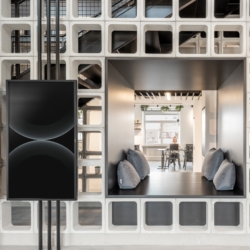November 6, 2024
Economic and political uncertainty continue to dampen commercial property market sentiment
 The outlook for the European commercial property market is cautiously optimistic despite growing geopolitical uncertainty and concerns about economic growth, with London, Madrid and Paris emerging as the standout performers, according to a new report by PwC and the Urban Land Institute (ULI). The report – Emerging Trends in Real Estate Europe 2025 outlines how market players believe ‘a new normal’ is emerging as valuations have come down and interest rates regain some level of predictability in a market characterised by higher inflation and interest rates, and geopolitical and economic uncertainties. This led to more than 80 percent of survey respondents expecting business confidence and profits to stay the same or rise in 2025, with around half predicting increases in both. (more…)
The outlook for the European commercial property market is cautiously optimistic despite growing geopolitical uncertainty and concerns about economic growth, with London, Madrid and Paris emerging as the standout performers, according to a new report by PwC and the Urban Land Institute (ULI). The report – Emerging Trends in Real Estate Europe 2025 outlines how market players believe ‘a new normal’ is emerging as valuations have come down and interest rates regain some level of predictability in a market characterised by higher inflation and interest rates, and geopolitical and economic uncertainties. This led to more than 80 percent of survey respondents expecting business confidence and profits to stay the same or rise in 2025, with around half predicting increases in both. (more…)


































November 20, 2024
Life science interiors: here’s how to create a petri dish for scientific breakthroughs
by Tal Ben-Amar • Comment, Workplace design